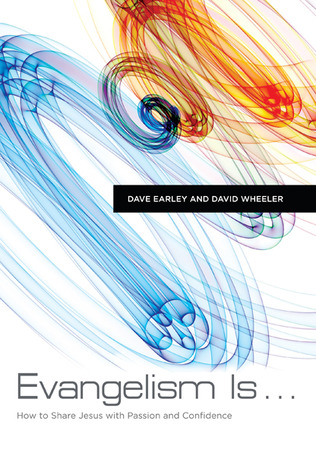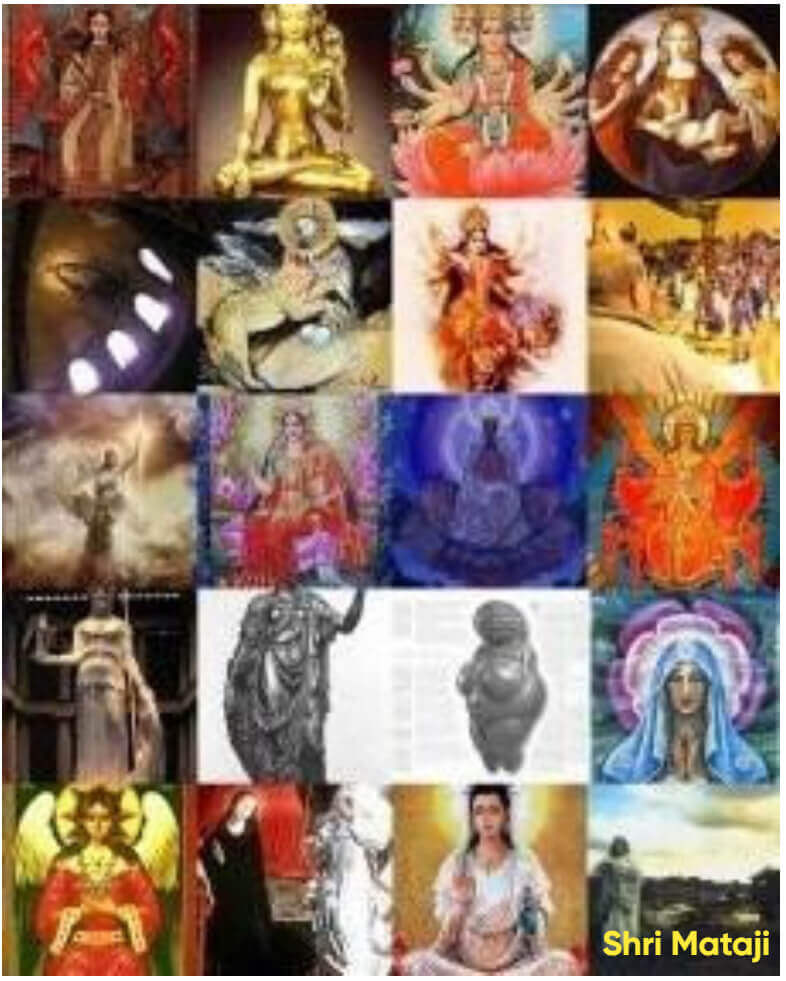“Jesus was talking to Nicodemus about a new beginning, a fresh start, and a chance to become a new person by entering into a life-changing, personal relationship with God.”
A spiritual analysis of Jesus's dialogue with Nicodemus on the nature of transformative rebirth
Abstract
This paper examines the profound spiritual encounter between Jesus and Nicodemus recorded in the Gospel of John, chapter three, as a foundational text for understanding the nature of spiritual transformation. Through careful analysis of the dialogue, supported by patristic commentary, modern theological reflection, and the spiritual insights of Shri Mataji Nirmala Devi, this paper argues that Jesus's teaching on the necessity of being born again
constitutes an invitation to an experiential, transformative relationship with the Divine that transcends mere intellectual assent, moral reform, or religious affiliation. The Nicodemus narrative reveals that authentic spiritual life requires a fundamental reorientation of the human person through the agency of the Holy Spirit, resulting in what the Apostle Paul would later describe as new creation
. This paper further explores the pneumatological dimensions of this rebirth and its connection to the promised Paraclete, suggesting that the Johannine understanding of spiritual regeneration anticipates a direct, experiential knowledge of God available to all seekers.
Introduction
Abstract
This paper examines the profound spiritual encounter between Jesus and Nicodemus recorded in the Gospel of John, chapter three, as a foundational text for understanding the nature of spiritual transformation. Through careful analysis of the dialogue, supported by patristic commentary, modern theological reflection, and the spiritual insights of Shri Mataji Nirmala Devi, this paper argues that Jesus's teaching on the necessity of beingborn againconstitutes an invitation to an experiential, transformative relationship with the Divine that transcends mere intellectual assent, moral reform, or religious affiliation. The Nicodemus narrative reveals that authentic spiritual life requires a fundamental reorientation of the human person through the agency of the Holy Spirit, resulting in what the Apostle Paul would later describe as
new creation. This paper further explores the pneumatological dimensions of this rebirth and its connection to the promised Paraclete, suggesting that the Johannine understanding of spiritual regeneration anticipates a direct, experiential knowledge of God available to all seekers.
The quest for spiritual authenticity represents one of the most enduring dimensions of human experience. Across cultures and throughout history, individuals have sought meaningful connection with the transcendent, yearning for answers to life's deepest questions and longing for transformation that addresses the fundamental human condition of alienation from the Divine. The narrative of Nicodemus, as preserved in the Fourth Gospel, captures this universal spiritual search with remarkable poignancy and theological depth.
As James Emery White observes, The search of Nicodemus is the search of many people in the world: a spiritual search for ultimate answers to life's questions. And like many people, Nicodemus is drawn to Jesus
(White, 1999). This drawing toward the source of spiritual truth, even when accompanied by hesitation and fear—symbolized by Nicodemus's approach at night
(John 3:2)—reflects the tension inherent in authentic spiritual seeking: the simultaneous desire for transformation and the reluctance to fully surrender existing frameworks of understanding and identity.
Nicodemus himself embodies a particular religious and social location that makes his encounter with Jesus especially significant for understanding the nature of spiritual rebirth. As a Pharisee and ruler of the Jews
, Nicodemus occupied a position of considerable religious authority. The Encyclopedia of the Bible notes that he was the well-known and acknowledged teacher who even had a place in the Sanhedrin,
suggesting that It could be expected of such a man that he knew the OT well indeed.
His entire religious identity was constructed upon foundations that, from a conventional perspective, should have guaranteed his standing before God: lineal descent from Abraham, meticulous observance of Torah, and commitment to the ritual purity system of Pharisaic Judaism.
Yet Nicodemus's approach to Jesus, however tentative, reveals an awareness that something essential remains lacking. White captures this dynamic perceptively: When Nicodemus gets there, he opens up the conversation by telling Jesus, 'There's something about you that's different. You've got something in your life that I don't have in mine. I want to know what it is. I want to be in a relationship with God. Tell me how'
(White, 1999). This acknowledgment—that religious position, moral achievement, and theological knowledge are insufficient for the deepest human longing—prepares the way for Jesus's revolutionary response.
The exegetical foundation: understanding
Jesus's reply to Nicodemus constitutes one of the most provocative statements in all of scripture: Very truly I tell you, no one can see the kingdom of God unless they are born again
(John 3:3). The Greek adverb (anothen) upon which this translation depends carries a deliberate ambiguity that proves essential to the dialogue's theological depth. As theological sources confirm, can have either meaning
of again
or from above
. The Concordia Theology analysis explains that By his response, Nicodemus misunderstands this to mean 'again.' But Jesus points him to a different meaning: birth 'by water and the Spirit.'
This linguistic richness is not merely a matter of semantic curiosity but reveals the nature of the transformation Jesus proposes. D.A. Carson, in his analysis for The Gospel Coalition, emphasizes that when the parallels between verses 3 and 5 are examined, it becomes clear that 'born of water and the Spirit' (3:5) is parallel to 'born again' (3:3)
. This parallel structure indicates that Jesus is not describing two births—one natural and one spiritual—but rather one birth that is simultaneously from above
in its origin and again
in its experiential dimension for the believer.
Nicodemus's literalistic response—How can someone be born when they are old? Surely they cannot enter a second time into their mother's womb to be born!
(John 3:4)—has often been interpreted as a demonstration of spiritual obtuseness. However, as Carson notes, You don't get to be called 'the teacher of Israel' (John 3:10—possibly a title) if you can't spot the odd metaphor.
Rather than simple misunderstanding, Nicodemus's response may represent a recognition of the radical nature of Jesus's demand: Nicodemus perceives the futility of insisting that we must have a new beginning: it's a bit late to demand a new beginning when we've made such a mess of the voyage.
The impossibility of self-generated transformation lies at the heart of Nicodemus's perplexity.
The pneumatological dimension: Spirit and rebirth
Jesus's elaboration in verses 5-8 introduces the essential pneumatological dimension of spiritual rebirth: Very truly I tell you, no one can enter the kingdom of God unless they are born of water and the Spirit. Flesh gives birth to flesh, but the Spirit gives birth to spirit
(John 3:5-6). The contrast between flesh and Spirit establishes an absolute distinction between what human effort can accomplish and what requires divine agency.
Dave Earley and David Wheeler provide a helpful clarification of the water
reference in their analysis: By describing births of both water and the Spirit, Jesus contrasted physical birth with spiritual birth. He said we need both. Jesus described the physical birth in verse 5 when He said 'born of water.' When a woman is pregnant, a sack of water protects the baby inside her ... The physical birth involves being 'born of water'
(Earley & Wheeler, 2010). This interpretation, while contested by some scholars who prefer to see water
as referring to baptism or to Ezekiel's prophetic imagery, has the merit of maintaining the clear distinction Jesus draws between the two births.
The role of the Holy Spirit in this regenerative process is absolutely central. As one theological analysis explains, The Spirit initiates, not merely assists; He brings the dead heart to life.
The same source elaborates that the Spirit's work includes creating life out of spiritual death
(Titus 3:5), implanting God's nature within
(1 Peter 1:23), uniting believers to Christ (1 Corinthians 12:13), and confirming adoption (Romans 8:15-16). This comprehensive pneumatological framework positions spiritual rebirth not as a human achievement but as a divine gift received through faith.
The wind blows wherever it pleases. You hear its sound, but you cannot tell where it comes from or where it is going. So it is with everyone born of the Spirit(John 3:8).
Jesus's analogy of the wind in verse 8 emphasizes both the reality and the mystery of spiritual rebirth. The Spirit's work is empirically verifiable in its effects (the sound
is heard) while remaining inaccessible to complete human comprehension or control. This paradoxical combination of certainty and mystery characterizes authentic spiritual experience.
The theological necessity of new birth
The absolute nature of Jesus's declaration—You must be born again
—establishes spiritual rebirth as a non-negotiable prerequisite for participation in the kingdom of God. This requirement stems from the fundamental condition of human existence after the Fall. As one devotional source explains, Christianity claims to change the essentially wicked nature of a man. Jesus makes you a new creation. You become a brand new creature with a brand new heart.
The Old Testament prophetic tradition anticipated precisely such transformation. Ezekiel 36:25-27, which Carson identifies as the most obvious
background for Jesus's language of water and Spirit, promises: I will sprinkle clean water upon you, and you will be clean... I will give you a new heart and put a new spirit in you; I will remove from you your heart of stone and give you a heart of flesh. And I will put my Spirit in you.
This prophetic expectation of internal transformation, rather than merely external reform, finds its fulfillment in the new birth Jesus announces.
The Apostle Paul's theology of new creation in 2 Corinthians 5:17 represents the mature apostolic understanding of this same reality: Therefore, if anyone is in Christ, the new creation has come: The old has gone, the new is here!
. While some interpretations have understood this as an instantaneous moral perfection, a more nuanced reading recognizes that Paul is saying that our worldview changes when we are born again. We suddenly realize that we are part of a new world.
The transformation is both objective—the believer is positioned in a new reality—and subjective, unfolding progressively as the implications of that new reality are apprehended and appropriated.
The contrast with merely human religion could not be starker. As one source observes, If you take a pig and you wash him, bathe him and dress him up in a wedding suit, all you have is a dressed up pig. This same pig will return to the filth that he is used to because that is his essential nature. Obeying a set of rules does not change your heart. Coming to Christ and being born-again is what affords every man the opportunity to have a new heart.
This vivid analogy underscores the distinction between behavioral modification and ontological transformation.
The progression of Nicodemus: from night to light
One of the most compelling aspects of the Nicodemus narrative is its trajectory across the Gospel of John. The Encyclopedia of the Bible observes that Many have observed a progression in Nicodemus' relationship to Jesus. He began with Jesus in 'the night' which has suggested to most of the interpreters that he was hesitant and afraid to be seen with Jesus, coming as he did in secrecy out of regard for his reputation and to protect himself.
This initial secrecy, while imperfect, nevertheless represents the beginning of authentic seeking.
The second appearance of Nicodemus in John 7 reveals development: At a later time Nicodemus defended, even if hesitantly, Jesus before the Sanhedrin, insisting 'Does our law judge a man without first giving him a hearing and learning what he does?' (7:51)
. This defense, however modest, demonstrates growing courage and commitment. The taunting response he receives—Are you from Galilee too? Search and you will see that no prophet is to arise from Galilee
(7:52)—indicates the cost of even this limited advocacy.
The final appearance of Nicodemus in John 19 represents full emergence from darkness into light: At the time of Jesus' burial he came out into the open and brought spices with which to anoint the body and assisted in the burial (19:39-42)
. The enormous quantity of spices—about a hundred Roman pounds
(33 kilograms)—demonstrates both devotion and resources. Pope Benedict XVI observed that The quantity of the balm is extraordinary and exceeds all normal proportions. This is a royal burial.
The trajectory of Nicodemus—from secret inquirer to hesitant defender to open disciple—illustrates the gradual but genuine outworking of spiritual rebirth in human life.
The promise of the Paraclete: completion of the rebirth experience
The teaching on new birth finds its completion in Jesus's promise of the Paraclete in the Upper Room discourse. This connection between regeneration and the gift of the indwelling Spirit is essential for understanding the fullness of spiritual rebirth. As one source explains, If one is born again, he has the Paraclete Spirit dwelling in his spirit/conscience.
The same analysis describes the mechanics of this spiritual reality: When I was born for the first time, a detached breath/wind/spirit of God entered me and became my animating human spirit. The second time, the non-detached Paraclete/Spirit from God connected with my human spirit and dwelled there. The latter is a spirit-to-spirit connection.
This understanding of spiritual rebirth as involving an actual connection between the human spirit and the Divine Spirit resonates with the teaching of Shri Mataji Nirmala Devi, who speaks from the perspective of realized spiritual experience. In her discourse on the resurrection, she emphasizes:
Today we are celebrating the resurrection of Christ. With it we also have to celebrate the resurrection of human beings, of Sahaja Yogis, who have been resurrected as realised souls. With that we have to understand that we enter into a new awareness. He had to come down and again to show to this world that you are the eternal life, that you lead a life that is spiritual, which never perishes. You have to rise, into that new realm, which is the Realm of God Almighty, what you call the Kingdom of God.— Shri Mataji Nirmala Devi, 1984
Shri Mataji's commentary on the Nicodemus dialogue emphasizes the distinction Jesus draws between flesh and Spirit: And He said it very clearly to Nicodemus that 'You have to be born again' when he asked, 'Am I to enter back into my mother's womb?' And He said it so clearly. Those who don't want to see can remain blind. No, that is, whatever is born of the flesh, is the flesh, but whatever is born of the Spirit is the Spirit
(Shri Mataji, 1984). This insistence on the distinction between human effort and divine grace, between institutional religion and spiritual reality, echoes through Christian mystical tradition.
Furthermore, Shri Mataji connects the new birth to the promised coming of the Paraclete:
And the third thing which is the most important thing that He said was that, 'I will send you a Redeemer. I'll send you a Counselor.' What about that prediction that He made about the three qualities of the Holy Ghost who will save you—the Counselor, the Redeemer and the Comforter?— Shri Mataji Nirmala Devi, Public Program, Paris 1985
This Trinitarian understanding positions spiritual rebirth within the larger economy of salvation, wherein the Father sends the Son, the Son accomplishes redemption, and the Spirit applies that redemption through regenerative union with believers.
Conclusion: the continuing invitation
The dialogue between Jesus and Nicodemus remains perennially relevant because it addresses the fundamental human question: How can one find authentic relationship with God? The answer Jesus provides—that one must be born again, born from above, born of water and the Spirit—challenges every human attempt to achieve righteousness through religious observance, moral achievement, or intellectual assent.
Dave Earley and David Wheeler summarize the matter succinctly: Jesus told Nicodemus that he had to be born again. In other words, He was telling Nicodemus that he needed a second birth. His first birth was insufficient. Being born again is not something you do. it's something you experience. Jesus was crystal clear: You will not experience the kingdom of God unless you experience a second birth
(Earley & Wheeler, 2010).
This second birth, effected by the Holy Spirit and experienced as a transformative encounter with the living God, opens the possibility of what Shri Mataji describes as eternal life
beginning now, within the believer: You have to rise, into that new realm, which is the Realm of God Almighty, what you call the Kingdom of God
(Shri Mataji, 1984). The invitation extended to Nicodemus—to move from night to light, from secrecy to openness, from religious form to spiritual reality—extends to every seeker after truth.
The promise of the Paraclete ensures that this rebirth is not merely a past event but an ongoing relationship. As the Spirit bears witness with our spirit that we are children of God (Romans 8:16), the believer experiences the reality of new creation and the assurance of eternal life. The search of Nicodemus, fulfilled in his courageous devotion at the cross and his honored place in Christian tradition as a saint, prefigures the journey of every soul that responds to Jesus's summons: You must be born again.
References
Carson, D.A. (2019). What Does 'Born of Water and the Spirit' Mean in John 3:5?
The Gospel Coalition.
Concordia Theology. (2009). Holy Trinity, John 3:1-17, June 7, 2009.
Earley, D., & Wheeler, D. (2010). Evangelism Is...: How to Share Jesus With Passion and Confidence. B&H Academic. [citation:source]
Encyclopedia of the Bible. Nicodemus.
Bible Gateway.
Grace Evangelical Society. (2024). What Does 2 Corinthians 5:17 Mean?
Heward-Mills, D. (2023). Daily Devotional: 28th May 'NEW CREATION'.
Reasonable Faith Forum. What does it mean to be born again?
Shri Mataji Nirmala Devi. (1984). The Paraclete.
V4 No 23 Sept 84 p4. [citation:source]
Shri Mataji Nirmala Devi. (1985). The Paraclete.
Public Program in Paris, April 22, 1985. [citation:source]
White, J.E. (1999). You Can Experience . . . A Spiritual Life. Thomas Nelson. [citation:source]
Wikipedia. Nicodemus.
Zondervan. What role does the Holy Spirit play in spiritual rebirth according to John 3:6?
Bible Hub.
Born Again: A spiritual analysis of Jesus's dialogue with Nicodemus on the nature of transformative rebirth— compiled from White, Earley & Wheeler, Shri Mataji, and biblical sources.

“The search of Nicodemus is the search of many people in the world: a spiritual search for ultimate answers to life's questions. And like many people, Nicodemus is drawn to Jesus. Though he is not sure who Jesus is, he knows that Jesus is a man who comes from God, recognizing that God is in Jesus in a away distinct from other men. So he goes to Jesus—at night—because he's not quite ready to let just anybody know what's going on inside of him.
When Nicodemus gets there, he opens up the conversation by telling Jesus, 'There's something about you that's different. You've got something in your life that I don't have in mine. I want to know what it is. I want to be in a relationship with God. Tell me how.' Jesus looks him in the eye and realizes that he sincerely wants an answer—so He gives it to him. And it's one of the most fascinating, provocative replies that has ever been recorded. Take another look: In reply Jesus declared, 'I tell you the truth, no one can see the kingdom of God unless he is born again' (v. 3)
Jesus says, 'You want to know the way? You must be born again.' Nicodemus is more than just a bit confused. 'The way is being born again? That makes no sense at all!' And we can understand his reaction, can't we? Our reaction would probably have less bewilderment and more cynicism. A modern-day Nicodemus would probably say, 'You've got to be kidding me. I thought you were different. Born again? That's what the televangelists and radio preachers talk about—or scream about. That line is the butt of a hundred jokes. Please tell me you're not going to take that route.'
But Jesus simply looked him in the eye and said: 'I'm telling you the truth. Unless someone is born not only physically, but spiritually, he cannot enter the kingdom of God. Flesh gives birth to flesh, but the Holy Spirit gives birth to spirit. So you really shouldn't be so surprised that I would say you must be born again.'
And that struck a chord with Nicodemus, because it spoke of something deeper that just belonging. Nicodemus was already a member of the Pharisees, the religious elite. And not only that, he was a member of the Jewish ruling council—seventy-one men who were the governing authority for Jews during the time of Jesus. And this wasn't about simply behaving. As a Pharisee, Nicodemus led a very moral life. And Nicodemus was so committed to the ritualistic purity of the Pharisees that he was made one of their leaders. And this wasn't about merely believing either. As a Pharisee, Nicodemus was devoted to the Scriptures. Jesus seemed to be calling Nicodemus to something deeper, something much more profound.
Jesus was talking to Nicodemus about a new beginning, a fresh start, and a chance to become a new person by entering into a life-changing, personal relationship with God. And once that became clear, you can only imagine Nicodemus' relief. He craved more as a spiritual being. He wanted a relationship, an encounter, an opportunity to come into contact with the living God and have his entire life reshaped, remade, reoriented—reborn.”
You Can Experience . . . A Spiritual Life
James Emery White, Thomas Nelson—October 21, 1999
“By describing births of both water and the Spirit, Jesus contrasted physical birth with spiritual birth. He said we need both.”

“A Second Birth
Jesus told Nicodemus that he had to be born again. In other words, He was telling Nicodemus that he needed a second birth. His first birth was insufficient. Being born again is not something you do. it's something you experience. Jesus was crystal clear: You will not experience the kingdom of God unless you experience a second birth.
I asked a gentleman if he was born again. He told me, 'Sure, I've been a Christian all my life.' That's not what Jesus was saying. He said we need a second birth. We need to be born again.
A Spiritual Birth
Nicodemus was thinking in physical terms when he asked, 'How can a man be born when he is old? Can he enter a second time into his mother's womb and be born?' (John 3:4).
Jesus responded that being 'born again' is not only experiencing a second birth but also experiencing a spiritual birth. Jesus answered, 'Most assuredly, I say to you, unless one is born of water and the Spirit, he cannot enter the kingdom of God. That which is born of the flesh is flesh, and that which is born of the Spirit is spirit' (John 3:5-6).
By describing births of both water and the Spirit, Jesus contrasted physical birth with spiritual birth. He said we need both.
Jesus described the physical birth in verse 5 when He said 'born of water.' When a woman is pregnant, a sack of water protects the baby inside her. She knows the baby is ready to come when the water breaks. When the baby is born, it's all wet. The physical birth involves being 'born of water.'
By saying, 'That which is born of the flesh is flesh,' Jesus was further referring to physical birth. When we are born physically, we mark the event with a certificate that gives the date, time, and place of our arrival. Note carefully that Jesus said the physical birth alone will not get us into the kingdom of God. We need a spiritual birth. We need to 'born of water and the Spirit' (John 3:5). Jesus added, 'The wind blows where it wishes, and you hear the sound of it, but cannot tell where it comes from and where it goes. So is everyone who is born of the Spirit' (John 3:8).”
Evangelism Is...: How to Share Jesus With Passion and Confidence
Dave Earley and David Wheele, B&H Academic—June 1, 2010, pp. 97-8

“Today we are celebrating the resurrection of Christ. With it we also have to celebrate the resurrection of human beings, of Sahaja Yogis, who have been resurrected as realised souls. With that we have to understand that we enter into a new awareness. He had to come down and again to show to this world that you are the eternal life, that you lead a life that is spiritual, which never perishes. You have to rise, into that new realm, which is the Realm of God Almighty, what you call the Kingdom of God.
And He said it very clearly to Nicodemus that 'You have to be born again' when he asked, 'Am I to enter back into my mother's womb?' And He said it so clearly. Those who don't want to see can remain blind. No, that is, whatever is born of the flesh, is the flesh, but whatever is born of the Spirit is the Spirit.'
But whatever is manmade is not the Spirit. This is the clear statement of Christ, which people wanted to avoid, and start their own organisations, and ideas, and created a very mythical thing in His name. And now the time has come for it to be blasted. It has been going on and on now for thousands of years, captures so many innocent people and people are into it.”
The Paraclete Shri Mataji
V4 No 23 Sept 84 p4

"The second fundamental of Christianity is that Christ died for our sins, that He suffered for us. We do not have to suffer for religion; we do not have to suffer for our ascent. Only we are to be realized souls so that we become one with the Divine; the yoga takes place.
So firstly He said to Nicodemus that, 'You are to be born again,' and when Nicodemus said, 'Is it I [have to] enter into the womb of my mother?' He says, 'No, whatever is born of the flesh is the flesh. You are to be born out of the Holy Ghost.'
And the third thing which is the most important thing that He said was that, 'I will send you a Redeemer. I'll send you a Counselor.' What about that prediction that He made about the three qualities of the Holy Ghost who will save you—the Counselor, the Redeemer and the Comforter?
Instead of forming these branches of religion — same in Islam, same in Hinduism — we have the same problem that you use your mental projections to solve the spiritual problems. You cannot solve through your petty mind which is such a limited thing. Something living has to happen within us to make us that which is promised. It cannot be an experience of jumping, or changing your dresses, or leaving your dresses. All these we can do ourselves.”
The Paraclete Shri Mataji
Public Program 1 in Paris—April 22, 1985


